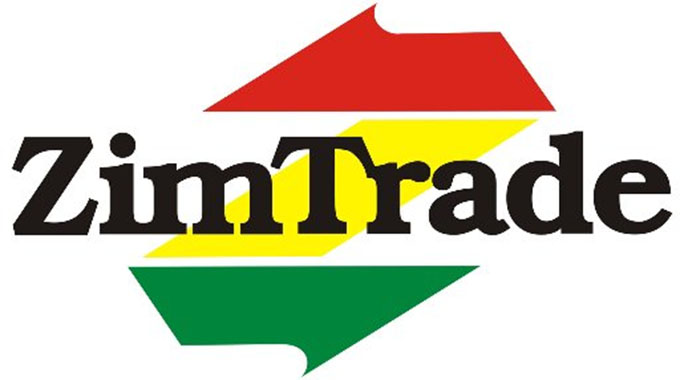13 distressed firms back on their feet
THIRTEEN formerly distressed companies have been brought back to life riding on improved ease of doing business and facilitation brought about by the Second Republic led by President Mnangagwa.
Drawn from different sectors of the economy, the revitalised firms are now beefing up their production capacity through retooling and technology absorption in order to supply both domestic and export markets, in the process substituting imports while creating more employment opportunities for locals.
The drive buttresses the broader domestic manufacturing rebound, which has seen capacity utilisation rising from 56 percent in 2021 to about 63 percent, a recent CZI survey shows, while shelf occupancy of locally manufactured goods has increased to about 80 percent in 2022.
The survey has also shown that at least US$101 million was invested into the country last year with companies expanding their capacity by up to 30 percent in 2022 alone.
Developing a solid manufacturing sector is a top priority under the Government’s National Development Strategy (NDS1), a critical building block towards attainment of an upper middle-income economy vision by 2030.
According to a detailed report by the Ministry of Industry and Commerce, the increased Government support and private sector partnerships have stimulated renewed industrial investments in the last few years, mainly in the manufacturing sector where increased focus is on value addition and beneficiation. The report presents huge strides registered by the rescuscitated businesses, which include key companies from Bulawayo, the Midlands, Harare and other parts of the country.
Zambezi Tanners, one of the biggest leather processing and exporting players in Bulawayo has since increased its capacity utilisation to 80 percent and in terms of volumes, on the crocodile side it is processing between 12 000 to 15 000 skins per year and 40 000 square feet for elephants annually. Recently the company launched a separate division that specialises in bovine finishing tannery.
“This is part of the company’s growth strategies as it eyes to penetrate global leather markets with special focus on Asia, the world’s major consumer and manufacturing hub,” reads part of the ministry report.
“This will be done simultaneously with Africa’s expansion drive as the company seeks to take advantage of the African Continental Free Trade Area (AfCFTA).”
Another top Bulawayo company, Ref Air, which specialises in all large and small-scale refrigeration and air-conditioning supplies, repair and installations is now on solid business footing. The company recently bought new equipment and machinery worth US$400 000, which comprises two automated de-coiler machines, one spiller and a blender.
Distressed firms Ref Air newly acquired machine
In Midlands Province, ZimChem Refineries and Victoria Foods have become shining examples of the positive impact of the Second Republic’s economic reforms. Gweru-based Victoria Foods, a subsidiary of the CFI Holdings Limited, which was placed under provisional judicial management in 2016, resumed its full operations in 2021 and has been operating satisfactorily since then.
“The company continues to invest in its milling operations in order to underpin its long-term competitiveness,” reads the report.
ZimChem Refineries, which produces industrial chemicals such as tar, creosote, liquid soap among others, has scaled up production as it focuses on aiding import substitution in line with national ideals.
The company has completed the refurbishment of its boiler leading to an increased production of tar and creosote with capacity utilisation expected to jump to 60 percent.
Masvingo-based sponge iron producer, Simbi Company’s capacity has recently risen to 80 percent with output estimated at 3 000 tonnes with 116 workers.
“The company is in the process of expanding its operations with the expansion programme consisting of phase 1 and phase 2. Total investment for phase 1 is estimated to be US$21,5 million and US$122 million for phase 2,” reads the report.
Reflecting on this, Industry and Commerce Minister, Dr Sekai Nzenza, has said the changing business environment under President Mnangagwa’s “Zimbabwe is open for business” policy has had a spill over into the productive sector seeing a consistent and sustainable economic growth trajectory.
“We have developed sector by sector strategies targeting key products under the NDS1 in order to tap into the potential of our natural endowments, skills, human resource, culture and history,” she said.
The revival of Deven Engineering and Chemplex Corporation in Harare is another big win for Zimbabwe as the country repositions itself as a strong regional and global economic player.
With a focus on assembling semi-knocked down trucks and bus kits, Deven Engineering, has recovered from lowest capacity utilisation of about five percent due to absence of off-take agreement from Government to achieve 98 percent assembly project status completion.
Chemplex on one hand is a well-established group of strategic importance to the economy as a key supplier of agriculture, water treatment and livestock chemicals, while supplying mines and other keys sectors.
The company’s revival has come in handy as it has assisted the country in fighting the January Disease and curbing teak-related livestock diseases through improved domestic supplies, said the ministry. Through research and development, with support from the Industrial Development Corporation, Chemplex Corporation has developed a modern dipping chemical product that is now being exported to sub-Saharan Africa and has further developed the first-ever Zimbabwean made cotton pesticide.
Commenting, permanent secretary in the Ministry of Information, Publicity and Broadcasting Services, Mr Nick Mangwana, said: “The resuscitation of the formerly distressed companies across the country is a clear indication the Second Republic is all about delivery.”
Under the astute and servant leadership of President Mnangagwa, he said, the Government has been seized with economic development anchored on the transformative development agenda, the NDS1.
“The coming back to life of these companies means more production and increased contribution to the Gross Domestic Product,” he said.
“It also means more employment opportunities and this is precisely what a Government with the interest of its people does round the clock. Zimbabweans should know they are in very safe hands under the leadership of President ED Mnangagwa.”
Distressed firms Ref Air newly acquired machine
According to the report, Manicaland Province has not been left behind as three of its top companies are being assisted to recover and grow business returns. Among these is the turnaround of vehicle assembly factory, Quest Motors, which produces buses, trucks and tractors as well as luxury vehicles but has been operating below optimum capacity with 102 employees. Phosphate ore reserves and magnetite operator, Dorowa Minerals is now undertaking an upgrade at one of its plants while awaiting equipment delivery from South Africa with financial support from the Treasury.
“The overall progress of the whole project is around 20 percent complete,” reads the report. Cicada Katiyo Estates, which produces avocadoes and macadamia nuts, has invested US$10 million to expand hectarage capacity and has created about 300 jobs with potential to double the figure, said the ministry.
The relaunch of giant textile producer, David Whitehead in Mashonaland East, anchored on a retooling programme valued at about US$20 million is targeting to replace 90 percent of obsolete equipment.
Distressed firms Ref Air newly acquired machine
“To date, 40 percent of spinning and weaving machinery has been received and others are already in transit. Massive civil works are ongoing… for installation of new equipment,” reads the report.
This is expected to provide new opportunity for the country to create more jobs along the value chain, cutting imports and promoting domestic cotton value addition.
In Mashonaland East, Hunyani has also beefed up its production in Marondera where it uses waste paper material to produce egg trays as part of waste management efforts and has 24 workers on two production shifts.
G&W Mineral, which is partly owned by IDC and operates from Mashonaland Central is working on setting up a limestone milling plant for both agriculture lime and high mesh worth three million with higher capacity to meet domestic needs.-ebusinessweekly












